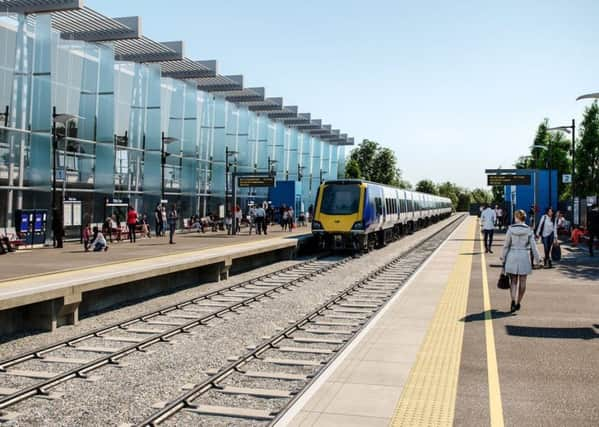New phase of work under way in £270m Leeds transport revolution


A public consultation on plans to plough an unprecedented £270m into the local transport network drew to a close at the end of last week.
Thousands of responses were given to proposals that include the building of new railway stations at Thorpe Park, in east Leeds, and the White Rose Office Park, near Churwell, as part of a strategy called Connecting Leeds.
Advertisement
Hide AdAdvertisement
Hide AdA linked public consultation was carried out earlier this year on plans for improved bus priority measures and infrastructure on some of the city’s key road corridors.
On the back of that first consultation, Leeds City Council’s executive board gave the green light last month to a raft of projects designed to provide better bus travel on routes such as the A647 (Leeds-Bradford) and the A61 (Alwoodley-Leeds).
And today a senior councillor said work would now start on the task of “collating and analysing” the latest set of responses with a view to making further progress. The council’s executive member for regeneration, transport and planning, Coun Richard Lewis, said: “With the latest phase of public consultation and engagement now concluded, we’d like to thank everyone who took the time to give us their thoughts.
“As with the first phase earlier this year, the feedback was impressive with more than 7,000 responses received. We will now spend the coming weeks collating and analysing those responses to help us shape the next phase of developments in those areas concerned. We are also continuing to develop detailed design plans for the road improvements in the first phase of the Connecting Leeds programme, as well as enhanced park-and-ride services for the city, as recently approved by the council’s executive board.”
Advertisement
Hide AdAdvertisement
Hide AdConnecting Leeds is being managed by the council with the West Yorkshire Combined Authority and other local stakeholders. It will be part-funded by money left over following the collapse of Leeds’s New Generation Transport scheme, more commonly known as trolleybus. Bus operator First West Yorkshire is also contributing by spending millions of pounds on more than 280 new vehicles.
Mass-transit is still in equation
Civic leaders are continuing to explore options for a mass-transit system following the failure of trolleybus and its predecessor, Leeds Supertram.
Supertram was scrapped in 2005, despite around £40m having already been invested in the scheme.
Alternative plans were then drawn up for a trolleybus system that would have been powered electrically by overhead wires. The £250m project was axed in 2016, leaving Leeds as the largest city in western Europe without a rapid transport solution.